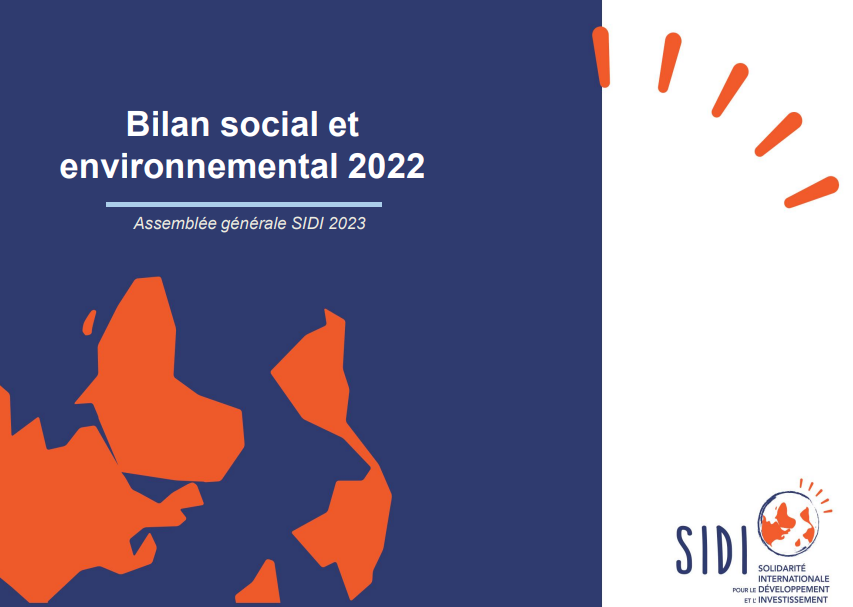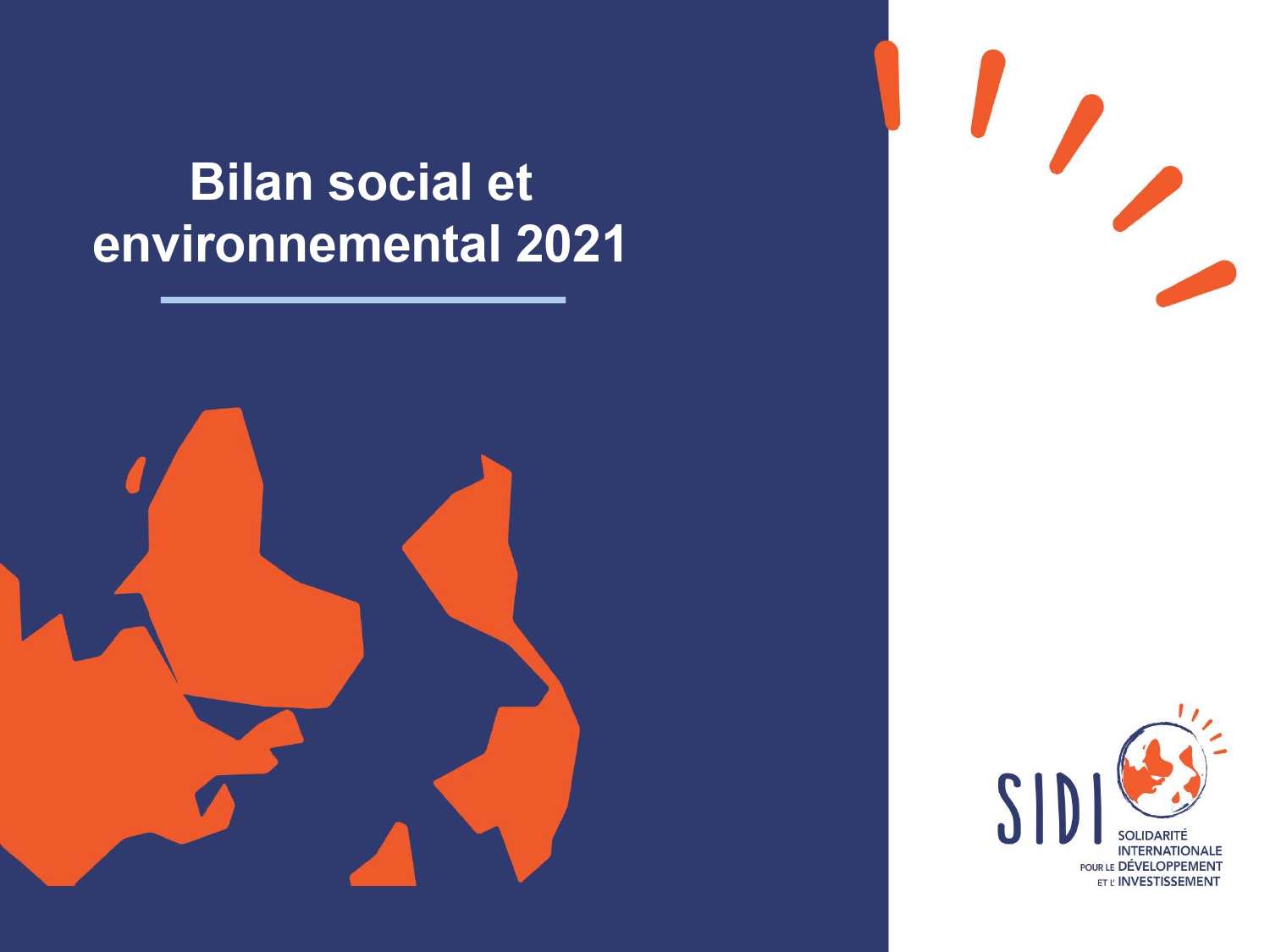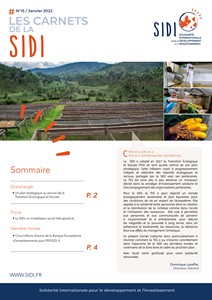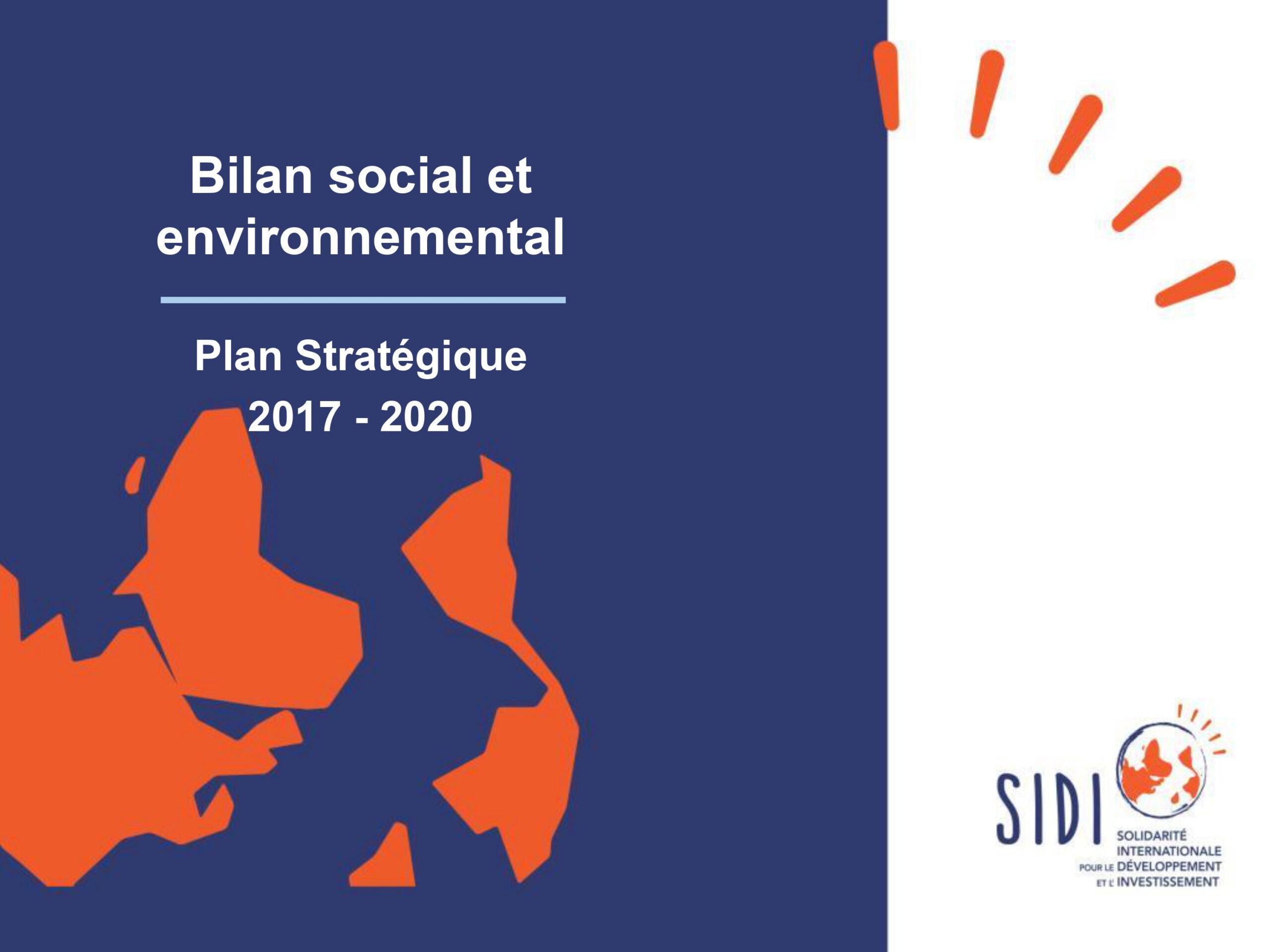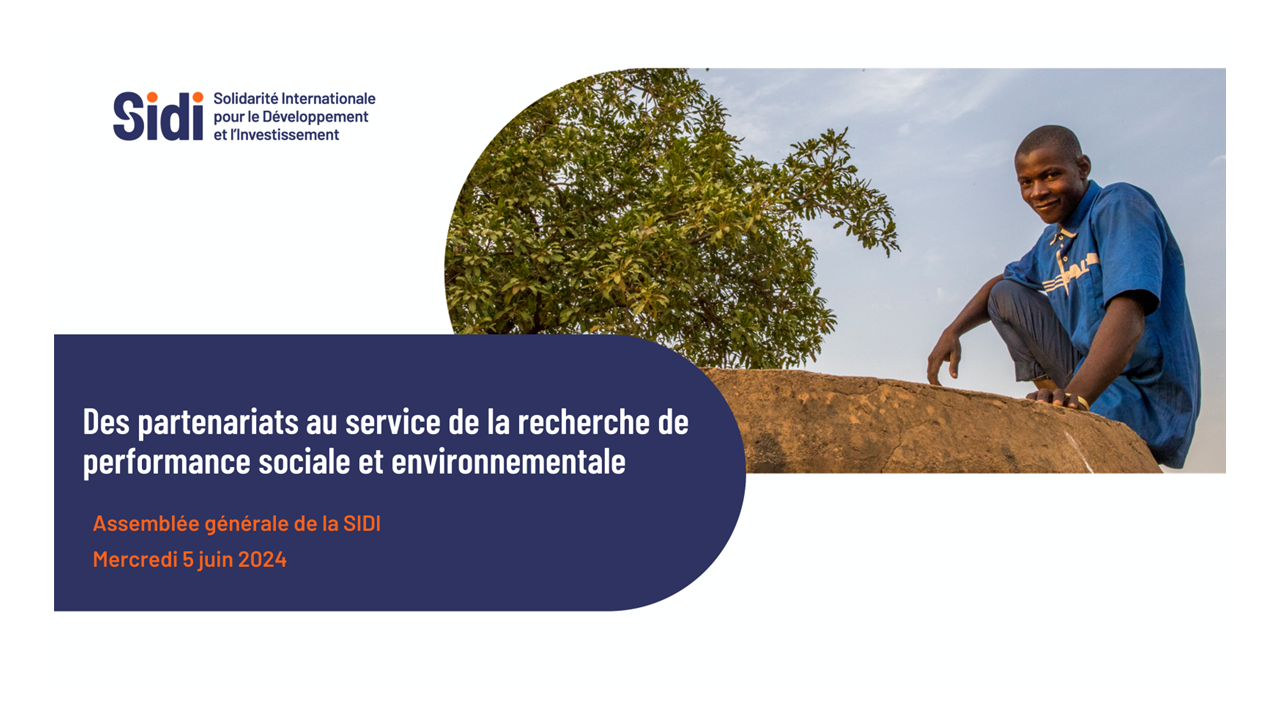
The Social and Environmental Report brings together figures and data on the social and environmental performance of SIDI and the partners it supports. Each year, it is presented to SIDI shareholders at the Annual General Meeting.
Social and Environmental Performance (SEP) consists of measuring how an organization – SIDI, like its partners – puts its mission into practice and achieves its social and environmental objectives in relation to the populations it targets. It complements economic and financial performance.
SIDI’s PSE guides the team’s actions at every stage of the partnership, from partner selection to impact assessments. By 2023, we will be supporting 124 partners in 33 countries.
As part of its social mission, SIDI has set itself three main objectives:
- Promoting economic equality
- Promoting poverty reduction
- Supporting the fight against climate change
These three major mission objectives are complemented by a cross-functional strategic axis: maximizing our additionality. SIDI’s additionality strategy is at the heart of its impact strategy. SIDI’s ability to create additionality with its partners is essential to generate a strong social and environmental impact.
Once again this year, SIDI is responding to this ambition through two types of action:
Intervene where other investors won’t, by targeting areas where the need for financing is greatest:
- 62% of SIDI’s portfolio is invested in sub-Saharan Africa.
- 68% of SIDI’s partners are located in low-HDI countries.
- 79% of partners are located in high-risk countries.
- 65% of partners target rural areas
Adapting our offer to the needs of our partners:
- 35% of the portfolio in equity investments (compared with 15% for other microfinance vehicles)
- Long-term partnerships and loan durations tailored to needs: 39 months on average for loans granted to microfinance institutions (compared with only 29 months for other microfinance vehicles).
- Financing amounts adapted to the size of partners: SIDI in particular has the capacity to offer smaller tickets (for example, 402 k€ on average for agricultural entities when other lenders offer an average of 990 k€).
- A comprehensive range of support services: SIDI’s partnership approach is based on the complementary nature of financing and support.
SIDI favours structures with a strong social and environmental impact, mainly rural or mixed microfinance institutions, and agricultural entities that are mainly certified organic and fair trade. Their social vision is aligned with that of SIDI. It supports them in achieving their own social and environmental objectives, which in turn contribute to SIDI’s objectives.
Find all the data compiled in Bilan Social et Environnemental 2023

